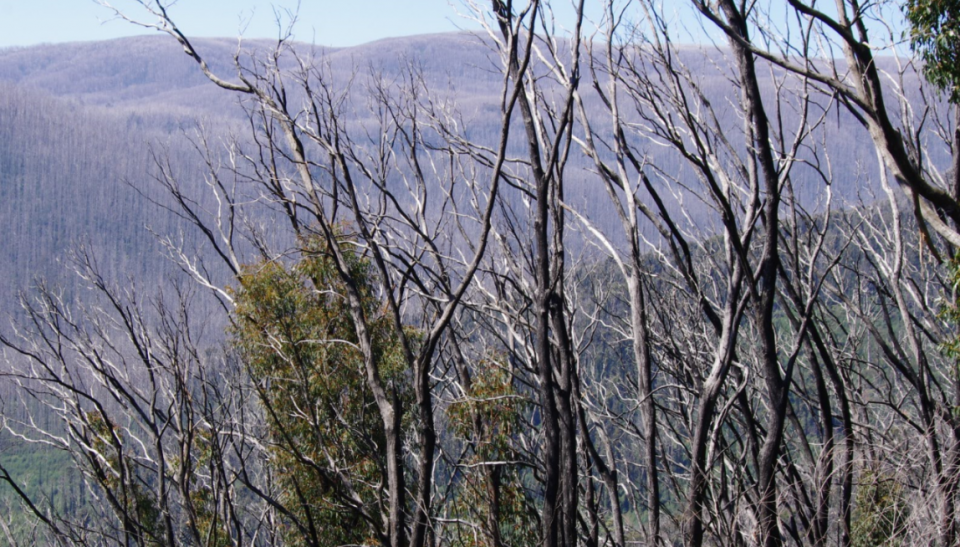
PUBLICATIONS
Published works

Disaster in Relation to Attachment, Loss, Grief and Recovery: The Marysville Experience.
| Title | Disaster in Relation to Attachment, Loss, Grief and Recovery: The Marysville Experience. |
| Publication Type | Thesis |
| Year of Publication | 2017 |
| Authors | Barton, D |
| Date Published | 09/2017 |
| University | RMIT University |
| City | Melbourne |
| Keywords | Black Saturday, communities, emergency management., fire impact, fire severity |
| Abstract | The thesis is a study of the post-2009 Black Saturday bushfire community of Marysville. The central research question asks: ‘How did survivors of the Marysville Black Saturday bushfire experience attachment, loss and grief in the post-fire recovery process?’ This informs two specific sub-questions, which are: ‘What were the experiences of Marysville residents in the aftermath of the fire, particularly regarding their sense of attachment, loss and grief?’ and ‘What can we understand about attachment, loss and grief in disaster recovery from their experiences?’ To answer these questions the research includes my own autoethnographic story utilising the technique of evocative autoethnography to which is integrated the technique of analytical autoethnography, thereby providing a thorough theoretical base for qualitative research and data collection. In addition to the autoethnographic research, further phenomenological and ethnographic data collection and analysis consisted of 18 formal in-depth interviews, 16 semi-formal interviews and 49 informal interviews (a total of 83 interviews), which accounted for about a third of the Marysville population at that time. The research also involved extensive literature and document collection and review. Heuristic and naturalistic analyses were used to interpret and make sense of the information. Data collection concluded in late 2013; however, analysis, interpretation and member checking continued throughout the project. Findings emerged as two main themes, replete with examples, or illustrations. The two themes are: 1. Attachment: the importance of post-disaster attachment behaviour in relation to people, possessions, pets, place and participation (the five Ps) particularly as related to topophilia and solastalgia. 2. Disempowerment: the post-disaster effect upon individuals and the community when they effectively have the ability to make their own decisions removed from them at both micro and macro levels. Of central importance in this study is the identification of a post-disaster phenomenon I have conceptualised and named as ‘Post-Disaster Attachment Trauma’ (PDAT). This is a new revelation that describes a disruption to the natural processing of early attachment-related human loss and grief responses, particularly regarding initial appraisal and searching behaviours. It results in further trauma which may delay and complicate grieving and recovery for individuals and community alike. When combined, the findings related to post-disaster attachment behaviour, topophilia, disempowerment, solastalgia and Post-Disaster Attachment Trauma make for a powerful description and compelling explanation of what many Marysville bushfire survivors have experienced. The research findings make their contribution to knowledge by discovering and explaining elements of individual and collective post-disaster experiences, particularly the role of attachment behaviour in recovery. The findings have implications for individual and collective resilience, recovery and mental health. They will benefit policy makers, therapists, government agencies and non-government organisations in the way they assist post-disaster individuals and communities in the future. This work is important because perhaps the lessons learned and knowledge gained will benefit future disaster survivors worldwide so they may not have to experience much of what the people of Marysville have struggled with since Black Saturday, 2009. |
| URL | https://researchbank.rmit.edu.au/eserv/rmit:162288/Barton.pdf |
Published Works


